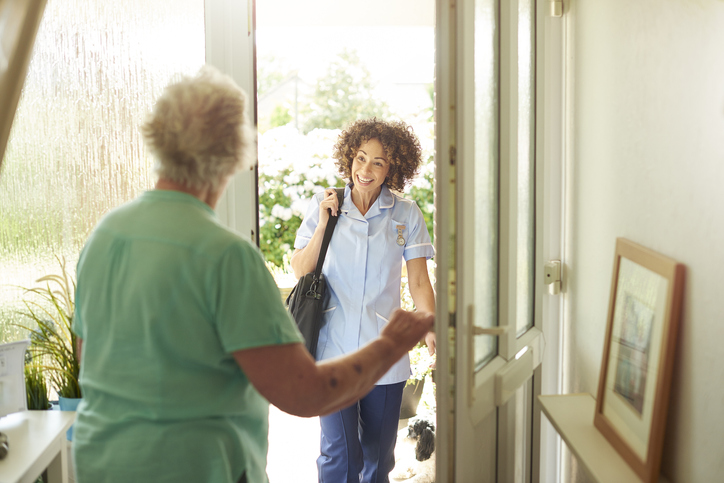If you’ve been providing care for a family member or friend for a while now, you may be thinking about officially becoming a registered carer. In this guide, we’ll cover what it means to become a registered carer, how to do it, and other support you may be entitled to.
Contents:
- What does it mean to become a registered carer?
- Registering with your GP
- Registering for Carer’s Allowance
- Becoming a self-employed carer
– What qualifications do you need?
– How to set up your business
– What insurance do you need as a self-employed carer?
What does it mean to become a registered carer?
A registered carer can receive access to support from your local GP, as well as registering for any benefits you may be eligible for as a result of the hours you spend caring for someone.
You can register as a carer with your GP, and this will then be recorded on your notes. Being registered as a carer means you will be asked about your physical/mental well-being, offered more flexibility when it comes to arranging medical appointments, and notified of any support services you may find helpful.
There are a number of reasons why becoming a registered carer could be a good move for you, including:
- If you are currently an unpaid carer but need financial support to carry on
- You think you may be eligible for carer’s benefits
- You work as a carer at an agency but would like to be self-employed at some point in the future
- You are interested in starting a carer agency of your own
You’re The Boss has a great number of resources to take a look at if you’re interested in finding out more about being a self-employed carer.
If you want to become a registered carer, consider the following steps to make this happen:
Register with your GP
If you are an unpaid carer, there are many benefits to registering as a carer with your GP practice. This applies even if you are in receipt of Carers Allowance.
Benefits of registering as a carer with your doctor include:
- Making staff aware of your role as a carer
- Providing more convenient appointment times
- Access to designated ‘Carers Champion’ that many GP practices have
- Access to useful information and support as a carer
- You will receive free annual health checks and flu vaccinations
Register for Carers Allowance
Becoming a registered carer can give you additional support and flexibility in your role as a carer, but did you know what you may also be entitled to financial support? Carer’s Allowance is a benefit available to unpaid carers.
You may be eligible for Carer’s Allowance if you:
- Care for someone at least 35 hours/week
- Are aged 16 or over
- Are no longer in full-time education or studying for more than 21 hours/week
- Earn less than £116/week after taxes, care costs, and 50% of what you pay into your pension.
We’ve written a total guide to carers allowance and your benefits, so have a read of it and see what you need to do in order to register for carers allowance.
Becoming a self-employed carer:
If you are working as a carer rather than providing care unpaid, you may want to register as a self-employed carer to develop your business. You will need to meet a few more requirements. These include:
1. Qualifications
While there is no legal requirement to have certain qualifications as a carer, you may still want to get certain certifications as a self-employed carer to show your clients that you can provide the proper care they need.
There are many diplomas and NVQs you can take, or you might choose to focus on gaining more direct experience as a carer before moving into a self-employed caring role.
2. Set up your business
To become a registered self-employed carer, you will need to think about the business side of things as well as your day-to-day work. This includes:
- Registering as a self-employed with HMRC
- Completing your Self-Assessment tax return
- Creating a business plan to think about how many clients you would like to take on, income, expenses etc
3. Insurance
When you are a self-employed carer, it is a good idea to consider what you will do if something goes wrong while working – whether that’s incurring an injury yourself or the person you care for getting hurt.
Having an insurance policy to protect you in these circumstances is important, covering you for things such as:
- Public liability i.e. protecting you if someone is injured because of your business
- Employers’ liability insurance (if you employ staff)
- Accidental loss or damage to your personal belongings
- Personal accident
Take a look at our self-employed carers insurance page for more information.








